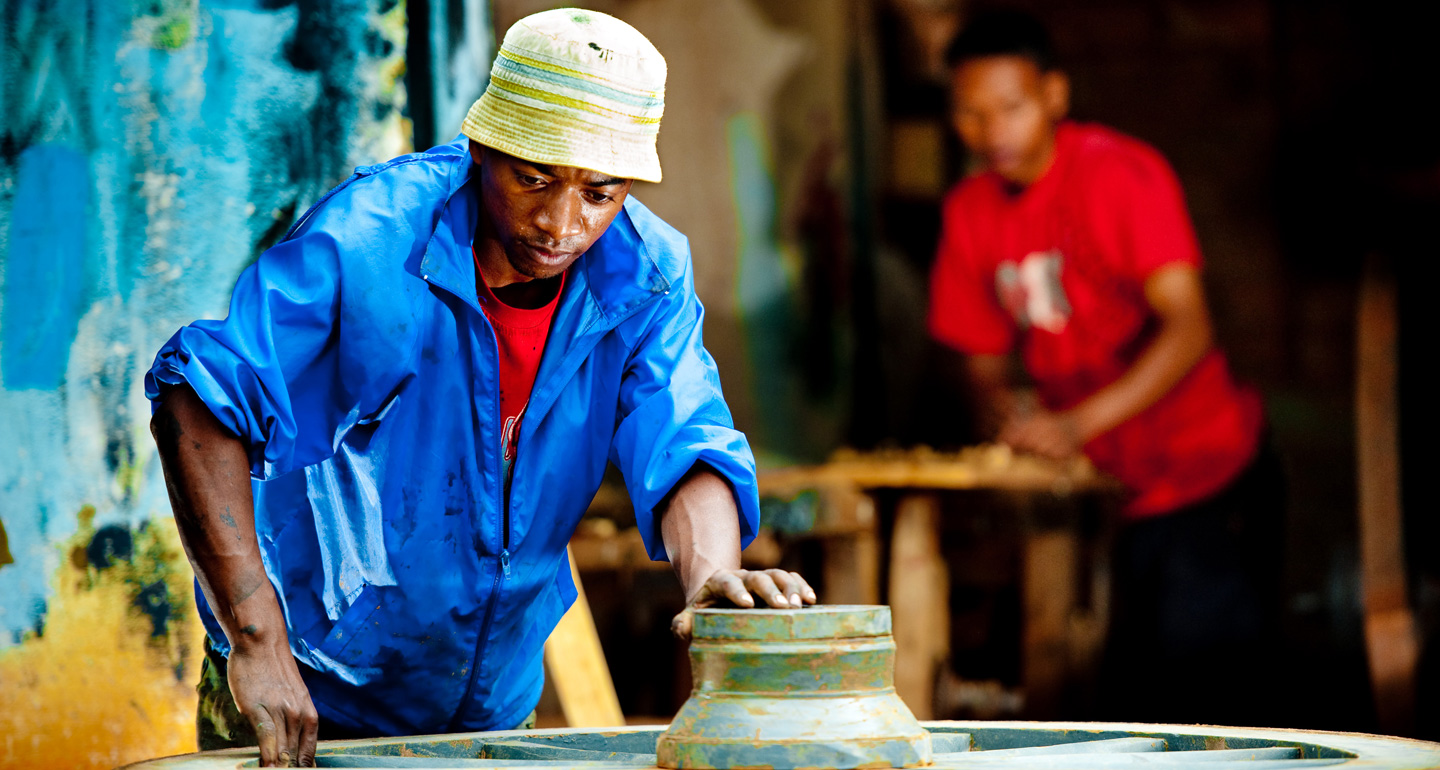Pathways for rural youth to financial inclusion
IFAD Asset Request Portlet
Asset Publisher
Pathways for rural youth to financial inclusion
By Michael Hamp, Esha Singh
 ©IFAD/R. Ramasomanana
©IFAD/R. Ramasomanana
Youth between the ages 15 and 24 years are expected to reach 1.4 billion or 14 per cent of the global population by 2050, with the Asia-Pacific region remaining home to more youth than any other region in the world until 2080. With increasing population, underemployment and increasing demand for food, youth can pay rich dividend in terms of social and economic growth when given the right opportunities and support for farm and non-farm activities.
While most smallholder farmers lack access to adequate financial services, the 2017 World Bank Findex notes that youth, especially rural youth, are even more disadvantaged than their adult peers; with 40 per cent of them less likely to save and 60 per cent less likely to borrow from banks in comparison to adults. This means that they have fewer opportunities to invest in asset development, education and building enterprises. The Global Findex also suggests that four out of 10 agrarian households in Asia-Pacific are prone to poor harvest risks with no means of insurance. These findings can be attributed to youth specific issues: (including young women and men, indigenous and migrating youth):
- poor financial literacy and capacities
- lack of products and services catered to youth's needs
- lack of land and other assets for collateral
- lack of trustworthiness/credit profile
- restrictive legal, regulatory requirements for youth etc.
These are further compounded by traditional issues faced by financial service providers (FSPs) in providing services in rural areas, such as:
- poor outreach
- poor outlook for agriculture sector lending
- poor rural infrastructure
- high transaction costs etc.
IFAD through its commitment for 2019-2021 and its Rural Youth Action Plan is already contributing to economic empowerment and creation of choices, opportunities as well as an enabling environment where young people can thrive. In Asia-Pacific, IFAD is making systematic investments that target youth through bridging the gap between public, private stakeholders including financial institutions and smallholder farmers, especially young farmers. IFAD's investments and project partners in the region are building a business case for offering services that meet the needs of young farmers and entrepreneurs; building young farmers and FSP's capacities; promoting growth of equity through savings mobilization; and financing the fundamental infrastructure needed to develop financial (digital and mobile) services for delivering last-mile credit, insurance, remittances, payments etc., as early adopters of technology, youth can get easier access to financial services through growing mobile and digital systems.
For instance, in Nepal, IFAD is supporting the government to implement the Rural Enterprises and Remittances Project that supports the development of viable rural, micro and small enterprises in both farming and off-farming sectors to provide sustainable sources of income to poor households- particularly youth, migrant families and returnees. The project is supporting financial and business education in order to use mobile money and other digital financial services; improved supply of financial services via strengthening of co-operatives, partnerships with financial institutions and risk sharing instruments. The project is also supporting migrant families through promoting remittance investment products and other services as well as for mobilizing their resources and skills for creating assets and businesses.
In Cambodia, through the Sustainable Assets for Agriculture Markets, Business and Trade= project, IFAD is supporting the Government's Skills Development Fund to finance training of eligible youth from rural areas to enhance their employment opportunities and labour productivity. Trainees are supported with seed capital grants from the project and assisted in developing business plans, market research and as well as in raising finance from the local private sector including FSPs. Additionally, the project is supporting 5,000 young farmers through trainings on digital literacy giving specific attention to gaps in women's digital literacy as well as providing incubator support to young farmers to develop concepts for rural-digital solutions. It is expected that they will be the first adopters of the project supported Chamka app, an ICT application for direct dial extension services, such as knowledge, finance, markets, weather, etc. and as a cloud-based market platform.
In Indonesia, IFAD in partnership with the Government has recently initiated the Youth Entrepreneurship and Employment Support Services Programme, which identified access to financial resources as key to support young people to develop their farms and other businesses. To improve youth inclusive financial services, the programme is supporting financial education; capacity building of selected financial institutions on innovative solutions such as small savings to loans, contract farming arrangements, warehouse receipts; and providing bridge financing for youth enterprises. To ease youth start-ups and fintech companies’ access to financing, the programme plans to partner with UNDP and the Angel Investment Network Indonesia to open a special window, called the Agribusiness Impact Fund for the financing of: new or expanding SMEs that are either promoted by young people, or create jobs for rural youth, or open new market outlets for young farmers and producers; and fintech companies extending financing to smallholders in the target areas through peer-to-peer, crowdfunding, market provisioning or digital lending.
With enormous unemployment in Asia-Pacific and a large potential for rural youth to develop farming and farm/off-farm enterprises, efficient and inclusive financial systems can enable today’s young generations to become the drivers and beneficiaries of sustainable rural transformation. IFAD, together with other development partners, play a key role in addressing specific challenges for youth's financial inclusion through helping financial education and financial behaviour, promoting technology enabled financial products for different life stages and services, supporting youth savings groups to build assets and a culture of long-term savings for creditworthiness. On the supply side, the task is to help FSP's to deliver effective financial services and products through structuring alternative forms of collateral to lower the cost of loans in rural areas. Lastly, promoting an ecosystem for digital technologies for rural finance through technical and financial support can also help address the diverse and seasonal needs for finance, reduce operational costs for FSP's and enable greater access and use by youth.
Publication date: 08 October 2019
